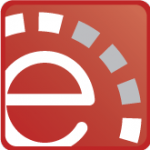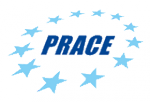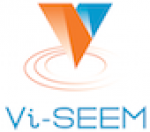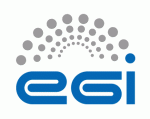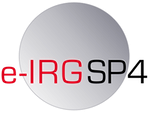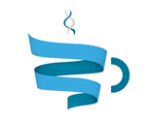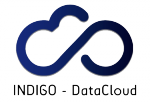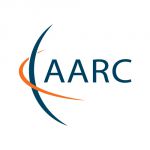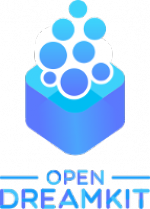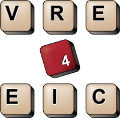Transversal Services project group
-
VRE4EIC is part of the Transversal Services (TS) project group, itself part of the e-Infrastructure project groups (Work programme 2014-15)
-
Mission: exploit synergies, remove overlaps and identify gaps, as well as share knowledge among the projects in each project group
-
Projects in the TS group:
EVER-EST is using new and state-of-the-art technolgies, systems and tools to create a virtual research environment (VRE) to enhance collaborative research and knowledge exchange in the Earth Sciences. Selected virtual research communities will provide specific use cases to validate the resulting EVER-EST VRE.
West-Life is a H2020 Virtual Research Environment project that will provide the application level services specific to uses cases in structural biology, covering all experimental techniques (e.g. Xray, cryo-EM, NMR, SAXS), enabling structural biologists to get the benefit of the generic services developed by EUDAT and the EGI.
The mission of PRACE (Partnership for Advanced Computing in Europe) is to enable high impact scientific discovery and engineering research and development across all disciplines to enhance European competitiveness for the benefit of society. PRACE seeks to realize this mission by offering world class computing and data management resources and services through a peer review process.
The Research Data Alliance (RDA) is an international member-based organisation focused on the development of infrastructure and community activities to reduce the social and technical barriers to data sharing and re-use and to promote the acceleration of data driven innovation and discovery worldwide.
VI-SEEM is a three-year project that aims at creating a unique Virtual Research Environment (VRE) in Southeast Europe and the Eastern Mediterranean (SEEM), in order to facilitate regional interdisciplinary collaboration, with special focus on the scientific communities of Life Sciences, Climatology and Digital Cultural Heritage.
The GÉANT network provides the high speed connectivity needed to share, access and process the massive volumes of data. This data is generated by, and essential to, diverse research and education communities across such areas as particle physics, bioinformatics, earth observation, drug discovery, and arts and culture.
The tranScriptorium team together with several new high level partners from Austria, Finland, France, Germany, and Switzerland will continue its work as an e-Infrastructure project funded by the EU Commission. The main objectives of the READ project (Recognition and Enrichment of Archival Documents) are to further improve Handwritten Text Recognition (HTR) technology, to apply it to real world large scale demonstrators, to make the technology available via the TRANSKRIBUS platform and to boost research in the Pattern Recognition domain by providing large data sets of historical documents for training, testing and evaluation. The project will be coordinated by the University of Innsbruck, Digitisation and Digital Preservation group. It will presumably start in January 2016 and run until mid 2019 and receive funding of more than 8 mill. EUR.
THOR is a 30 month project funded by the European Commission under the Horizon 2020 programme. It will establish seamless integration between articles, data, and researchers across the research lifecycle. This will create a wealth of open resources and foster a sustainable international e-infrastructure. The result will be reduced duplication, economies of scale, richer research services, and opportunities for innovation. Learn more about the THOR mission.
The e-Infrastructure Reflection Group Support Programme 4 (e-IRGSP4) provides support for the e-Infrastructure Reflection Group (e-IRG) and hereby supports the collaboration of national and pan-European e-Infrastructure initiatives and stakeholders. The e-IRG cooperates increasingly closer with the European Strategy Forum on Research Infrastructures (ESFRI), whose work it largely complements through its lateral domain.
INDIGO - DataCloud develops an open source data and computing platform targeted at scientific communities, deployable on multiple hardware and provisioned over hybrid, private or public, e-infrastructures. By filling existing gaps in PaaS and SaaS levels, INDIGO-DataCloud will help developers, resources providers, e-infrastructures and scientific communities to overcome current challenges in the Cloud computing, storage and network areas.
The vision of the EarthServer-2 project is to offer researchers 'Big Earth Data at your fingertips' so that they can access and manipulate enormous data sets with just a few mouse clicks. EarthServer-2 will provide services to analyse multiple Petabyte scale datasets spread over multiple data providers.
EDISON is a 24-month project, established in September 2015, with the purpose of accelerating the process of establishing the profession of Data Scientist. This will be achieved by coordinating the vision and activities of the stakeholders who will contribute to and benefit from Data Science as a professional practice.
HPC competence centres have been set up in some Member States to facilitate access and take-up by industry and in particular SMEs of HPC services. As yet these centres do not cover the whole of Europe. Supporting one network of HPC competence centres will promote access to computational expertise anywhere in Europe and enable the dissemination of best practice in HPC industrial use particularly for SMEs. This topic contributes to the implementation of the European HPC strategy, in particular to foster the use of HPC by SMEs.
OpenDreamKit is a Horizon 2020 European Research Infrastructure project (#676541) that will run for four years, starting from September 2015. It will provide substantial funding to the open source computational mathematics ecosystem, and in particular popular tools such as LinBox, MPIR, SageMath, GAP, Pari/GP, LMFDB, Singular, MathHub, and the IPython/Jupyter interactive computing environment.
